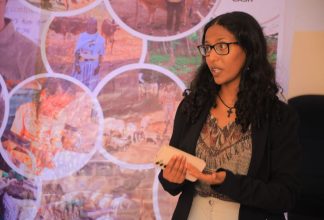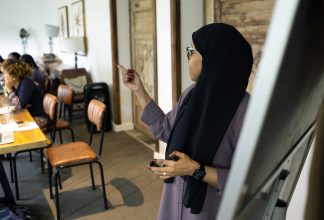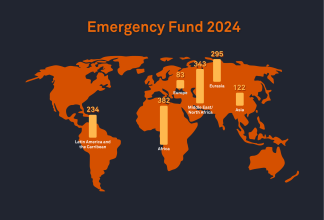Long Delays, Frustrated Voters, Violence and No Change to the Ruling Elite
February 18th brought long delays as frustrated voters queued for hours to cast their votes during the Ugandan Presidential elections. The results proved no surprise as the incumbent President, Yoweri Museveni who has been in power for 30 years, won with 60,8 % of the votes while the main opposition candidate Kizza Besigye’s took 35,4 %.
Huge delays marred the elections as voters in some areas were attacked by the Police using tear gas and when the polling stations finally opened after tensions died down, voting extensions were granted in some parts of the country.
According to Uganda’s Electoral Commission 63.5% of the 15 million registered voters (in a population of around 35 million) cast their ballots. The incumbent President, Yoweri Museveni and his party, the National Resistance Movement (NRM) were once again up for election challenged by seven presidential candidates.
According to the EU’s observer mission the election lacked a high degree of transparency and independence. Security forces heavy-handed treatment of and intimidation of opposition figures who were arrested for short periods before the election was criticised both by the EU and several other organisations.
In terms of security, a force of 150,000 police, military and prison personnel was deployed around the country’s 28.010 polling stations. However, it is questionable as to how these forces contributed to greater democratic stability given the incumbent government’s 30 years firm grip over the state and security apparatus.
Social media outlets such as Twitter, Whatsapp and Facebook, as well as mobile connections were shut down during the elections. According to the Ugandan Communications Commission (UCC) the decision was taken due to national security reasons. However, critical voices in Uganda soon speculated that this was a direct governmental order to avoid negative coverage and criticism of the regime.
Civil Right Defenders local partners Unwanted Witness commented in a press release on Friday:
”While many of the voters had no idea of the location of their polling stations, and many turned to the internet for guidance, the Communications Commission passed draconian directives under the color of law and office directing ISPs to block access to social media networks including Facebook, Twitter and WatsApp and mobile phone services”
Future developments in Uganda will be greatly affected by the election results. For human rights defenders, it means continued risks as the introduction of increasingly oppressive regulations and restrictions on freedom of expression, freedom of association and assembly against the media, civil society and the opposition will now once more gain momentum. The government has often used national security and anti-terror legislation to shrink the space for civil society. Restrictions were clearly exemplified before the eyes of international observers during the elections as they witnessed the blocking of social media and the often brutal actions of the security forces..
Civil Right Defenders will continue to follow developments in Uganda through our local partners and players in place to analyse the situation and support human rights defenders in their work for human rights. For more background information on last week’s elections please click on the following link which includes a “Situation Analysis Uganda: Election 2016” compiled by Civil Rights Defenders.


